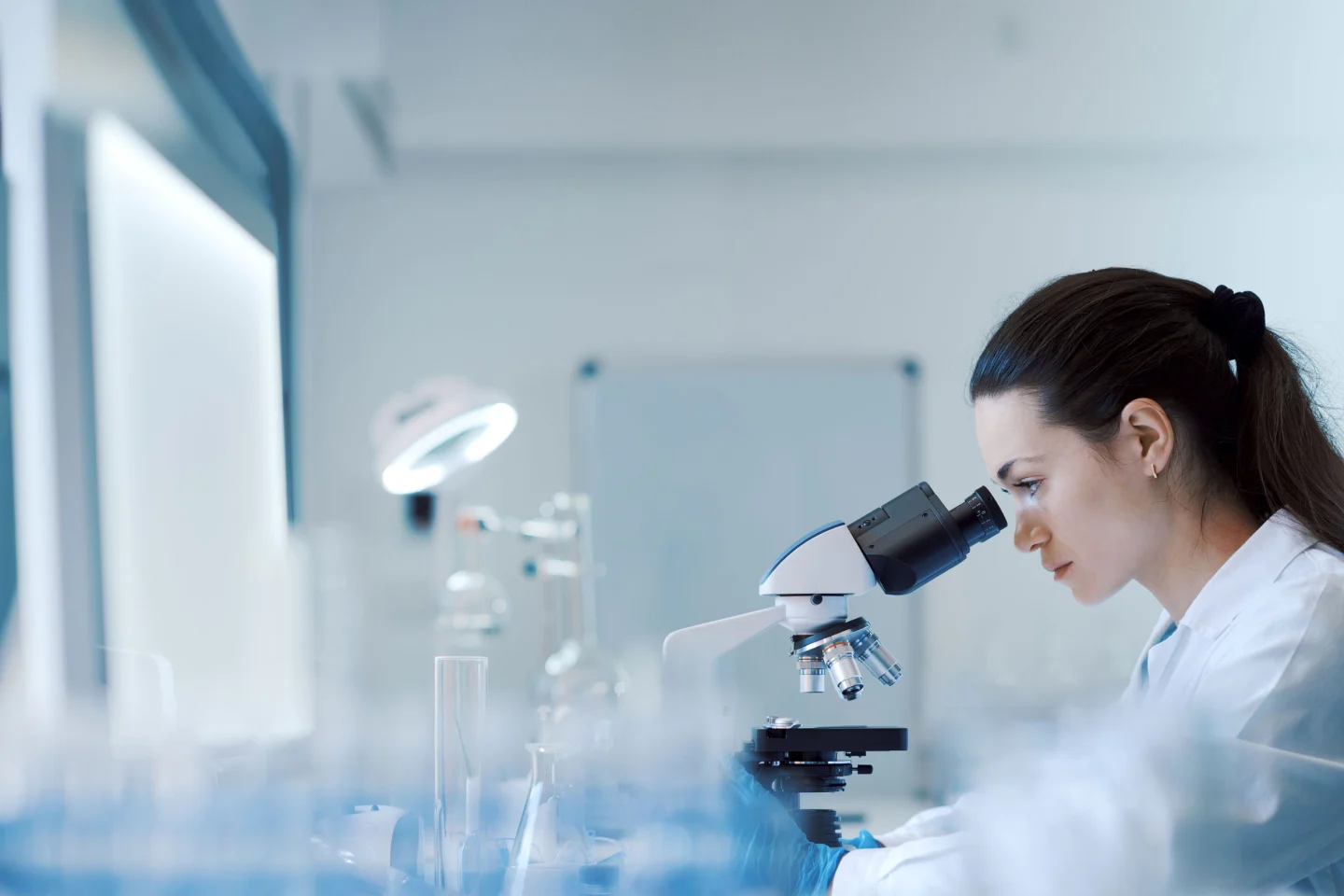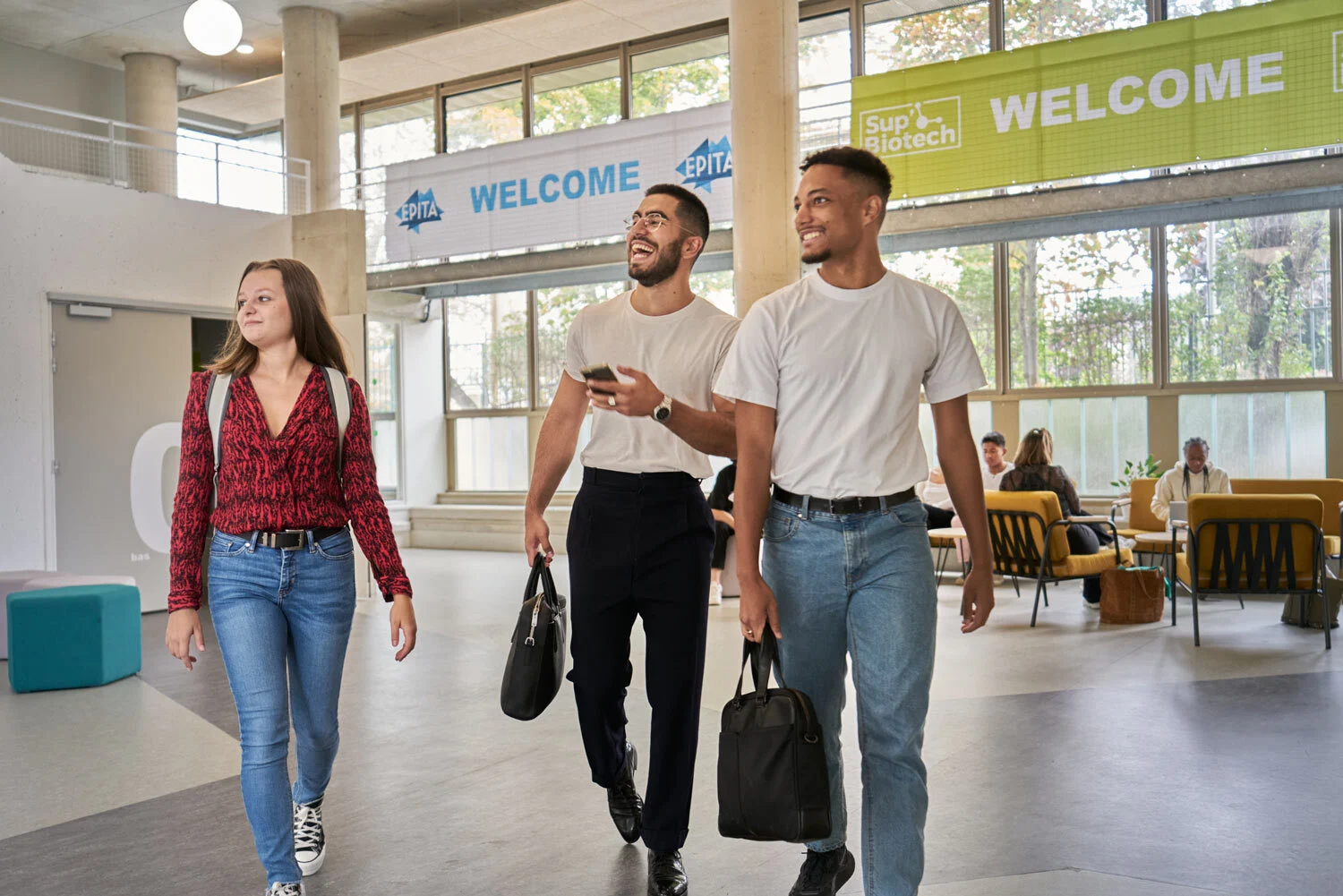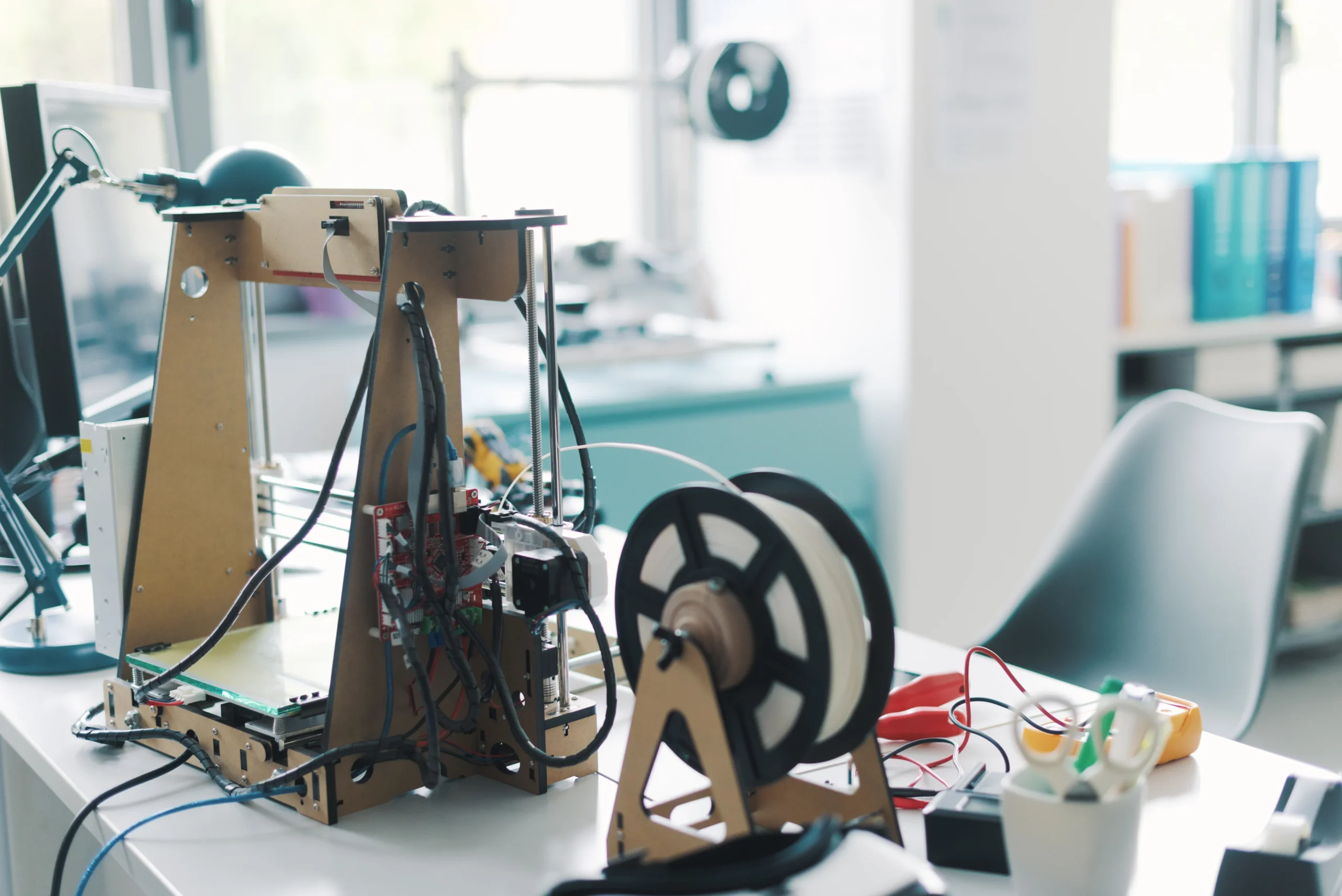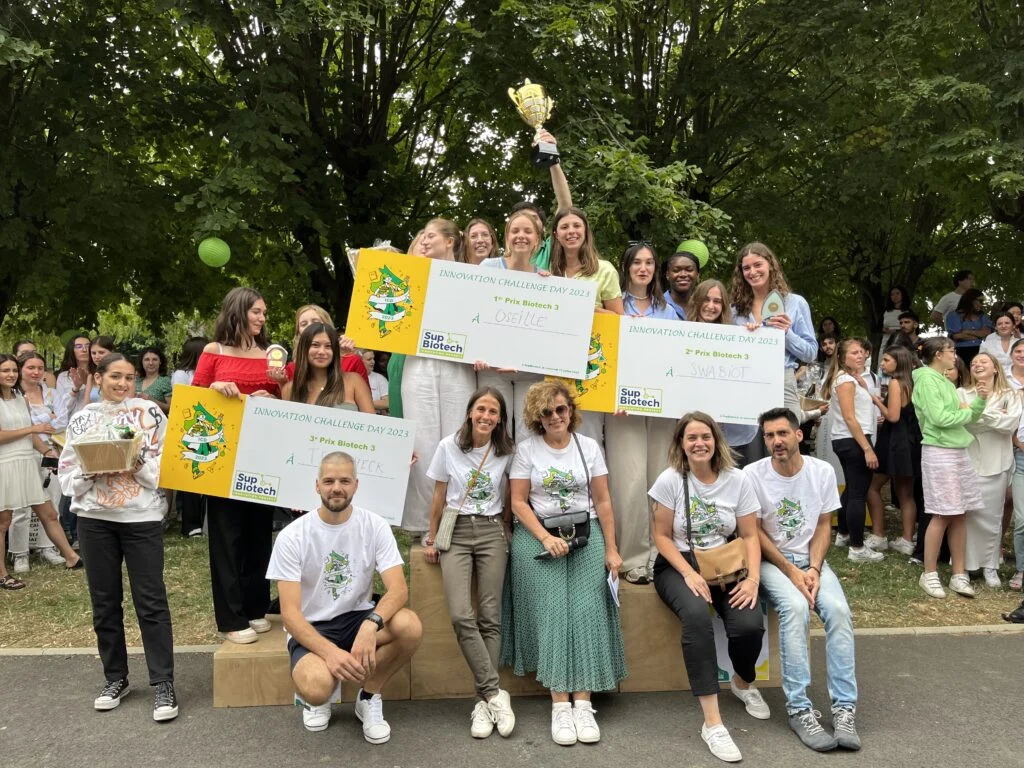
SupBiotech Innovation Project
The S.B.I.P programme offers future SupBiotech students in biotechnology a genuine full-scale experience in « project management » focusing on innovation, run over a period of about ten weeks of immersion in 4 years, right from the 2nd year.

Preparing your professional life
The students benefit from the creativity and innovation drawn from their academic experience, from working in a team, a project management aptitude, field experience, the creation of a professional network and the adoption of a composed attitude for the future.
Each project is made up of 6 students with different professional profiles from Majors in the second cycle at SupBiotech in fields of work such as health, pharmaceuticals, cosmetics, agribusiness and the environment.
- RResearch & Development,
- Bioproduction & Quality,
- Product Marketing & Management
Introduction to innovation
The S.B.I.P innovation philosophy, « a programme, a concept, a project », centres on creativity, innovation, and an industrial focus, all starting from ideas from student projects or ones put forward by professionals in biotechnology.
Introduction to innovation begins through research into ideas based on a bio-inspired approach. Students find inspiration from life, pulling out one or two elements worthy of a project with genuine economic and environmental value.
Student teams put together the « project architecture » on themes relating to science, technology, regulations, intellectual property, the market and competition. These steps are part of the drafting of technological documents required for the proof of concept.
Partnerships
The project leaders may find opportunities for working in partnership with academic and institutional structures or major accounts to establish their industrial credibility and potentially obtain financial backing. They can conduct « field » trials within their project collaborating with outside partners.

Programme sequence
In the 2nd year, the learning phase: the students have to set up the basic steps for the project in order to gain more insight into the implementation of the innovative projects in biotechnology.
In the 3rd year, the project architecture phase: as a team the students build up a well-thought-out and pragmatic overall vision of the project. They themselves define the relevance of the project.
in 4th year, the proof of concept phase: the project leaders carry out technological manipulations to highlight the technical proof for the project.
in 5th year, according to achieved results, they may consider the implementation of pilot tests, this is the pre-industry proof of concept phase.
The FabLab for the innovative projects
The Fablab for the innovative projects is open to students to facilitate their proof of concept works (feasibility process).
The main workshop is kitted out with traditional laboratory equipment: heat chamber, centrifuge, freezer, autoclave… The annex has a plant growth chamber, 3D printers and a designated area for cosmetics.
From the beginning of the 4th year students have access to technological areas, the FabLab for innovative projects and its annex given over to the completion of the proof of concept…

Examples of projects
BioSand Project
BioSand aims to provide an alternative, sustainable solution for the use of sand, a non-renewable resource, for the construction industry. Instead of relying on sand, BioSand focuses on the recycling of concrete waste and its reuse in the construction industry.
Claire LANGLE, Hugo GRANDJEAN, Clara MARTINEZ, Mathilde MUSETTA, Margaux PERNICELLI, Rachelle FONTAINE (2024 Class)
Carbon Capt project
The Carbon Capt project aims at creating a method for the production of a bio-inspired, resource-efficient brick, sequestering CO2. Certain pieces of recycled concrete will firstly be enriched with CO2 thanks to a carbonatation process which will mineralise it and sequester it in the stone in a sustainable manner. Then, with the help of microorganisms, the coral-inspired brick will be assembled at room temperature.
Julie KAHANE, Elisa MARBEUF, Raphaël MASSE, Amélie SULPICE, Juliette VISCONTI, Léa WERNETTE (2024 class)
Undergreen Project
Undergreen focuses on one objective: sustainably improve the air in the underground. To purify the air the Undergreen innovation goes straight to the source of the pollution which is fine particles from the trains’ brakes that are thrown back out through the vents located further along from the passengers. Undergreen proposes an air filter made up of a mixture of seaweed, microorganisms and minerals. This natural filter will breakdown the harmful compounds and the biowaste collected will then be upgraded into biomethane.
Caroline MARTIN, Léa TANTET, Eloïse WASERMAN, Noâ BELLAICHE, Marion REDAUD, Eléonore OBERTHÜR (2024 class)
Fungarise project
Fungarise offers an ecological alternative to the toxic waste polluting our marine and terrestrial ecosystems and degrading our wildlife; it combines the breakdown of hydrocarbons thanks to fungus and the subsequent upgrade of this product into bio fertilizers.
Jules HAUER, Baptiste LEQUEUX, Aurélie MINART, Yasmine MOHANDI, Emma ROGRIGUES (2024 class)
Innovation Challenge Day
Innovation Challenge Day is an annual event that takes place in July for the 3rd and 4th years at the school. This event provides these two separate classes with the opportunity of learning about the Sup’Biotech Innovation Projects (S.B.I.P) led by different student teams.
On the day, 4th year students assess the projects of their fellow 3rd year students and vice-versa. It is a good way to encounter both criticism and constructive remarks, but also to understand the expectations of the members of the jury by putting themselves in their place. At the end of the day, the Sup’Biotech managers as well as the administrative and academic teams at the school award a trophy to the three best projects in each year.

This experience gave me an insight into what happens behind the scenes when designing a project from scratch. There are so many elements to consider, even at a state-of-the-art level or the viability of the project itself, let alone the intellectual property and industrial aspects. I really enjoyed this freedom of approach and learning versatility.
Mathilde Broquet (2021 class)